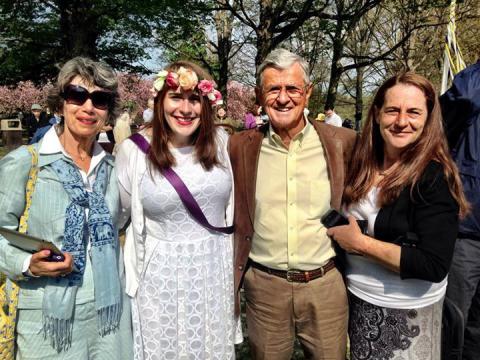November 9, 2014 - 20:53

Both of these pieces highlighted the many consequences to the growing population of older Americans. Emanuel and Silverstone both write that there will undoubtedly be challenges but they are impossible to predict and incredibly diverse. Silverstone speaks clearly about the changing needs of social workers and how the evolving field reflects the challenges Emanuel worries about. Like many of my classmates I am both frustrated and unwillingly relating to Emanuel's op-ed. I spent alot of time reading the reflections of my classmates and it was comforting to know that this isn't just causing me internal confusion.
I agree with many of my classmate's observation of Emanuel's ableist and classist narrative of aging. @smalina writes “Emanuel's focus on the number 75 also assumes an incredibly normative life pace, that leaves little room for the queer and crip time experienced by so many.” Not only do so many of us defy normative time at a young age, more and more Older American's are defying Emanuel's generalizations. My maternal grandparents defy the odds and Emanuel's insinuation that older adults cannot experience rewarding and vivacious lives. My grandfather (78) and step-grandmother (72) retired to Asheville,NC and I sometimes think they are healthier than I am, half a century younger. They have active social lives, exercise daily, and travel globally multiple times a year. I am surprised that their upper-middle class, privileged experience of aging is not what Emanuel envisions for himself.
Both of these grandparent's have also been lucky to have minimal experience with major interventional medicine. I attribute much of that to their dedication to remaining healthy. My maternal grandmother turned 75 this past summer and also lives independently and is one of my biggest supports. Silverstone writes that many older Americans "will remain in or return to workforce to supplement diminished retirement incomes." (312) My grandmother experienced this growing phenomenon. She returned to work in her early 50's after getting a divorce and worked until she was 73. Financial necessities made this late career choice necessary and since she was laid off her financial situation has been dire. She has also suffered from several major medical situations since her job loss. I can see a clear decline in her health since her stress levels have skyrocketed and her resources have become scarce. This decline is an example of Emanuel's argument but these three “outlier” grandparents have made it possible for me to go back to school, have stepped in as parental figures all the time. If they had died at 75, I would be lost.
My unwilling relation to Emanuel's argument happened when I read about his father's heart attack. Familial trauma's do change the way people look at their own life trajectory.While his descriptions are somewhat problematic, I do not believe that Emanuel is saying that his father operates solely as a burden. Major traumatic life events, like strokes & heart attacks, do not just affect the patient. They change everyone’s life. Emanuel writes about the often hidden effects of surviving strokes, "The bad news is that many of the roughly 6.8 million Americans who have survived a stroke suffer from paralysis or an inability to speak. And many of the estimated 13 million more Americans who have survived a “silent” stroke suffer from more-subtle brain dysfunction such as aberrations in thought processes, mood regulation, and cognitive functioning." This is a haunting fact, that millions of American families per year are moving into a new reality that consists of HUGE emotional, financial, emotional challenges and VERY little support.
It is impossible for me to imagine how I will feel about aging when I am Emanuel's age. My life plan has also been changed drastically by experiencing my father's stroke when he was only 46. Emanuel missed the boat by not acknowledging major health set backs are unavoidable at any age. I worry often if I will want to have children of my own or find a long term partner. @abradycole puts it perfectly when she writes, “Although it’s difficult to separate Emmanuel’s argument from the many problematic things we’ve brought to light in our posts, the one take away I’ve gotten from this article is that there are people who don’t agree that dying is the worst thing that can happen to a person, and that it is the individual’s job to decide when they’re ready to do it.” I also work hard to try and make positive memories in my new role as caregiver and with the new challenges we face. These challenges have made me more appreciative of the time I have with my grandparents and inspired me to spend as much time as possible with them. Neither Silverstone, Emanuel, or I have the answer as to how best to deal with our changing realities. We can only try to take care of ourselves to the best of our ability and cherish the moments we have with the older people in our lives.
My Step-Grandmother, Grandfather, Mom, and I at Grand May Day 2014

-Katie
